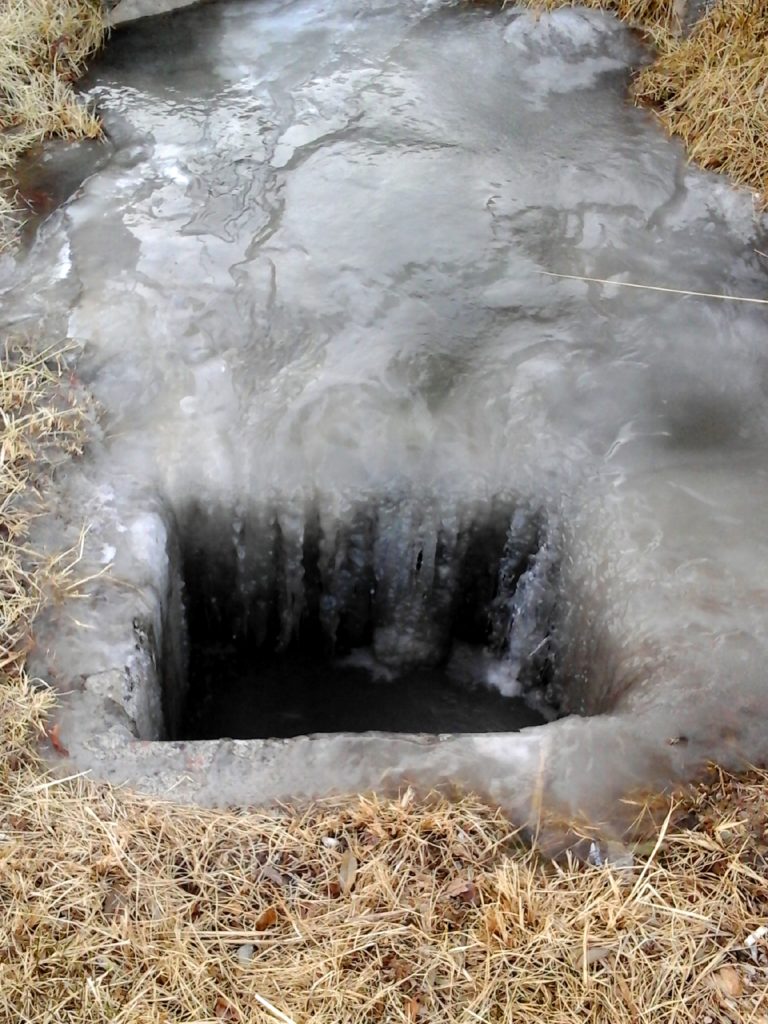Nietzsche, Nihilism, and Us
Those of us who believe we are living through a moment of final civilizational decline — to be clear, that’s “final” as in “last stage,” not “the absolute end of everything” — often cite late modernity’s fall into nihilism as either a symptom of the decline, a cause of it, or both.
Nihilism — broadly, the belief in nothing (nihil), i.e., the rejection of any standard of intrinsic meaning or purpose in life — developed primarily in nineteenth-century German thought, and was isolated as perhaps the central theme of late modern philosophy by Nietzsche. Contrary to our existentialists and postmoderns who sometimes see themselves as his heirs, however, Nietzsche did not see nihilism as a position of romantic self-importance, the mock tragedy of the intellectual class, but rather as the genuine tragedy, the catastrophe in fact, of a society that no longer feels there is any compelling reason to live.
In a future installment, I will outline Nietzsche’s explanation of the historical sources of Western nihilism. For now, suffice it to say that although the progressive Left has co-opted Nietzsche as an intellectual forebear — as an ill-fitting substitute for their thoroughly debunked grandfather, Marx — in fact the man himself saw socialism, along with its sister monstrosities romanticism and radical egalitarianism, not as solutions to nihilism, but as evidence of nihilism, which is to say of civilizational decay.
In brief, Nietzsche contends that nihilism, the loss of all belief in any reality or meaning beyond our bare physical existence, the vertigo of mankind at the edge of an abyss of his own making, results from a kind of cosmic laziness. A civilization that no longer believes in its own defining myths (or truths, if you will), and that lacks the strength of will and the courage to develop a new foundation to justify its existence, is essentially exhausted, in the literal sense of being spent. The first half of this equation — the loss of belief — entails a long, complex historical devolution. The second half — spiritual exhaustion, i.e., weakness and cowardice — is bred in large measure by the social conditions that come to prevail in an age that has lost its purpose.
What sort of social conditions? A passage from the collection of Nietzsche’s unpolished notes subsequently published as Will to Power shows fascinating insight into this issue — not least for its predictive value, considering that the conditions Nietzsche describes in relation to nineteenth century Europe are easily transferrable to all the advanced nations of the world today.
The topic of this passage is exhaustion itself, as a personal and civilizational condition — the exhaustion that allows us to slide lethargically into the abyss — which Nietzsche predicted could only lead to the rise of the spiritually empty “last man,” the mass brutality of tyranny, and an eventual collapse into universal moral anarchy.
Acquired, not inherited exhaustion: (1) inadequate nourishment, often the result of ignorance concerning diet, as, for instance, in the case of scholars; (2) erotic precocity: the damnation more especially of the youth of France. Parisian youths, above all, who are already dirtied and ruined when they step out of their lycées into the world, and who cannot break the chains of despicable tendencies; ironical and scornful towards themselves; galley-slaves despite all their refinement (moreover, in the majority of cases, already a symptom of racial and family decadence, as all hypersensitiveness is; and examples of the infection of environment: to be influenced by one’s environment is also a sign of decadence); (3) alcoholism, not the instinct but the habit, foolish imitation, the cowardly or vain adaptation to a ruling fashion. What a blessing a Jew is among Germans! See the obtuseness, the flaxen head, the blue eye, and the lack of intellect in the face, the language, and the bearing; the lazy habit of stretching the limbs, and the need of repose among Germans — a need which is not the result of overwork, but of the disgusting excitation and over-excitation caused by alcohol. [Will to Power, Anthony M. Ludovici translation, §49]
There is no way to read this passage without seeing ourselves under the microscope. The diagnosis, though synoptic almost to the point of being cryptic (the essence of Nietzsche’s aphoristic style), is both unnerving and, if we are given to honest self-assessment, disturbingly familiar.
The question Nietzsche is attempting to answer (for himself, since this is a notebook entry) is: What makes modern man so susceptible in practice to the lassitude that draws one to nihilism, the lack of any will to overcome its call to spiritual suicide?
His answers, taken in turn:
(1) Inadequate nourishment
On its face, an unhealthy diet may seem a plausible cause of a certain lack of energy, which in turn we might regard as inclining a person to feeling mentally tired as well. But is it not a stretch to cite poor diet as a cause of nihilism? To answer this question, we need to understand more clearly what Nietzsche is driving at here.
The specific mention of “the case of scholars” in this connection is indicative of his deeper implication, especially in conjunction with his qualifying phrase “often the result of ignorance concerning diet.” The ignorant scholar is the implied theme of this first cause. Ignorant of what? Of the body and its needs. That is, of the practical, earthly realm from which that scholar has absented himself, professionally, morally, and personally, in the name of a distorted notion of intellectual purity.
Nineteenth-century Germany was the spiritual home and source of the global flourishing of the late modern university professorship, with its doctoral degrees, its academic journals, and its elevation — or more accurately, diminution — of the university instructor from independent thinker and teacher (aka philosopher) to professional, accredited, socially-sanctioned specialist (aka milquetoast “intellectual”). The model of the university as the home of detached experts, “research scholars,” was born of the dominant academic philosophy of the first half of Nietzsche’s century, German idealism — which subsequently became the entire world’s dominant philosophy through the middle of the twentieth century. German idealism is, at its core, a rejection of Nature, i.e., of the physical world and its inescapable influence in our lives. (This was the moment when, with an early assist from idealism’s great precursor, Rousseau, “nature” ceased to mean what it had always meant — namely the world as we experience and understand it — and came to mean merely the pretty trees, birds, and passions of Romanticism, i.e., the supposed “pre-rational” world.)
Almost every part of the university — today, arguably, we can remove the “almost” — was affected by idealism’s contention that human nature and history left to their own devices were bound to remain locked in stasis or blind repetition, whereas the active (that is, politically-coerced) creation of a new progressive social world contravening Nature, and driven by a neo-mystical collective social mind with the scholars as its vanguard, would lead to the final utopian revelation of ultimate Truth, a truth in which mankind recognizes his collective divinity. From the idealism of Fichte and Hegel — the classic example of a philosophy belonging exclusively to the university itself, detached from life as non-scholars actually live it — arose the “scientific materialism” of Marx and the American pragmatism of Dewey. All these men of superficially dissimilar perspectives shared one essential sentiment in common: hatred of the implications of human nature, of natural human intentions, and of non-socially-constructed human goals.
For Nietzsche, who saw clearly what it took most of the world another hundred years to understand fully, this intellectual socialism was merely the means whereby life-despising intellectuals aggrandized their unnatural instincts into a ruling philosophy. Today’s distant and most benighted descendants of idealism’s legacy, the social justice warriors with their ninety-three genders and their stubborn denial of any biological (i.e., natural) basis for any of them, represent the same scholarly mind Nietzsche was attacking, filtered through the twentieth century’s theatre of the absurd.
Nietzsche himself had been a scholar, though not a successful one by any ordinary standards, with his first major work, The Birth of Tragedy, being dismissed by his peers as megalomaniacal and insufficiently academic. Ill health and increasing tension with the university environment conspired to free him, while still a young man, from that spirit-suffocating world of abstract intellectualism which regards its truths as inherently, and properly, impractical in the sense of being detached from human biological nature.
Hence, “inadequate nourishment,” resulting from “ignorance concerning diet,” is the special deficiency of a social hierarchy that has elevated the despisers of earthly human existence to the role of intellectual leadership. Dry knowledge or expertise — the cataloguing of abstract “truths” which fly in the face of the imperatives and lessons of real, physical experience, effectively detaching the “knower” from himself — is the reduction of philosophy to a self-perpetuating artifice entirely lacking the almost visceral, life-or-death compulsion that once defined the desire for wisdom. Modern scholarship is thinking without regard for life and desire. A society ruled by modern scholars is one which has lost its natural impulses, i.e., its will to live. In short, it is an exhausted society.
“Inadequate nourishment” is the scathing assessment of a scholarly class that purports to be society’s knowers, but does not even know how to feed itself properly, so detached is its “knowledge” from the inescapable basis of human life, the body, which is to say one’s own potency. The flabby or poorly nourished scholar is a living satire of the aims and outcomes of the Prussian-idealist social hierarchy, which is the direct precursor to and model of our own progressive social hierarchy.
(2) Erotic precocity
This is a theme to which Nietzsche returned occasionally in his later works, and on which one might argue that only Plato is obviously more profound. Nietzsche, in fact, is significant in the history of philosophy partly for having reintroduced the centrality of desire to philosophic thinking, after the early moderns had largely buried it in favor of scientific empiricism, and the German idealists directly objected to it as the chief obstacle in their attempts to undo and reconfigure human nature.
Eros, the definitively human desire, is not a mere physical urge to be indulged independently of the intellectual life, or to be eschewed in favor of the intellectual life, as the case may be. Rather, Eros is the source of any intellectual life worthy of the name. It is the delicate, mysterious link between our bodily, animal nature and that highest part of us which may variously be called “soul,” “mind,” or “spirit.” Philosophy (“the love of wisdom”) is, as Plato taught us, the ultimate spiritual manifestation of the erotic impulse.
Eros is the longing for completion and eternity. Hence, it is the sole, shared source of procreation and family; of poetry and great deeds; of statesmanship and teaching — all our human attempts to extend ourselves beyond the limits of our individuating circumstances, which is to say beyond the limits of time. The philosopher’s goal, wisdom, to the extent it is achievable by man, is the final step in this natural hierarchy of interrelated ends — the culmination of the “erotic ascent,” as Socrates calls it in the Symposium. To become fully human in the highest sense is a process of purifying one’s natural erotic fuel into the energy that will carry the soul successfully into the realms of self-examination and self-knowledge.
But this implies a bracing lesson: If all the soul’s worthy endeavors and virtues arise from this same volatile fuel, then the careless dissipation of this fuel, or its frivolous burning without the guidance of a higher purpose, actually creates a deficit of human potential, which is to say a loss of the vitality that ought to have propelled the soul to its innate limits. This loss of vitality, the saddest and most profound case of exhaustion to be witnessed in the human world, is effected most surely and completely by premature habituation to the most superficially physical, and least spiritually ennobling, excitations of the sexual instinct.
I have discussed this problem in detail in the final chapter of the theoretical portion of The Case Against Public Education, entitled “Eros and Education,” wherein I explain how progressives have systematically appealed to young people over the heads of their parents, using sexual enticement as a weapon of convenience with which to weaken their souls, inuring them to soft despotism through the emasculating effects of enslavement to pleasure. Here is a relevant passage:
Eros, the intermediary between the human and the divine, cannot be exorcised from the soul outright, but he can be diverted from his proper role in human development, thereby becoming an overwhelming obstacle to maturation, rather than the most powerful impetus toward it. Plato himself poignantly demonstrates this through the example of Socrates’ other great student, the anti-Plato, Alcibiades, who rejects Socrates’ call to self-understanding in favor of Eros’ lower manifestations, and hence becomes habituated to self-destruction and shamelessness. As he says of himself, he is now susceptible to shame only in the presence of Socrates, whose existence reminds him of what he has forsaken, namely the good, or, to say the same thing another way, himself. This shame, he says, may be assuaged only by avoiding his teacher altogether, which means that the awareness of what he has lost in his immoderation actually becomes a further incentive to avoid the very force that might draw him back to nobler pursuits. [The Case Against Public Education, 370]
Compare Nietzsche’s account of the Parisian youths from the lycées, “who cannot break the chains of despicable tendencies; ironical and scornful towards themselves; galley-slaves despite all their refinement.” Hence they are “already dirtied and ruined,” in that their scornful lack of naiveté and open-mindedness, their defensive psychological posturing in protection of their debasing habits, effectively shuts them off from the pursuit of great ideas or ideals, the wonder induced by beauty, and the striving for immortality and completion that makes properly-developed men impervious to petty pleasures and pains, and prepared to withstand hardship for a higher goal, rather than to seek mere comfort and a safe place to indulge in one’s mindless and self-destructive gratifications. The universalization of this premature distortion and diversion of the erotic impulse in the late modern world, achieved primarily through public schooling and our degraded mass entertainment, has, to borrow Nietzsche’s apt description, made refined galley-slaves of us.
(3) Alcoholism
Nietzsche, the furthest thing from a prig among German philosophers, frequently discusses the pernicious effects of alcohol. Note, however, his emphatic distinction between the “instinct” of alcoholism, which is not his concern, and “the habit, foolish imitation, the cowardly or vain adaptation to a ruling fashion.”
His specific objection, in other words, is to what today we euphemistically call “the drinking culture” — the idiotic social conformity and will to idiocy that formed the essence of nineteenth-century Germany’s nationalistic, self-identifying obsession with “our beer,” as it likewise forms the essence of almost every other modern nation’s obsession with its own favorite nectar of oblivion. Alcoholism — far more ubiquitous than the most liberal estimates dare to claim — is late modernity’s ultimate mask: It is the outwardly bold bluster of the inwardly weakened spirit.
In sum, modernity’s self-perpetuating drinking culture, with its initiation rites and its implicit shunning of those who refuse to participate, is the ultimate form of mass socialization, i.e., the deprivatization of the individual. Habitual, ritualistic, imitative social drunkenness — along with the pervasive normalization of the drinking attitude as an undercurrent of daily social life — makes everyone small, boring, and ridiculous. In this self-abasing setting of “rounds,” chemically-induced emotions, and artificial familiarity, no one is superior, no one is serious, no one can stand in front of the mirror the next day — let alone in front of other people — and say “I’m unique and interesting.” Drinking makes everyone feel comfortable and the same. It reduces us all to the warm bath of social acceptance in the form of knowing grins and eyes that twinkle, “Can’t wait till next time.” (I see this demeanor on the faces of Korean university students regularly, as they greet one another after a night of drinking. Each time, I feel I am witnessing the secret handshake of the “Let’s Waste Our Lives Together and Pretend It’s Meaningful” Club.)
The drinking culture weakens thought, suffering, longing, and self-control — the serious human life — behind the mask of unearned pleasure. That is its purpose. It is the great leveler, mowing down the tall poppies with its senseless egalitarianism. It kills the soul’s higher life so no one can feel different and alone. These days, when I smell alcohol on the breath of someone I like, such as a talented student, it takes a great feat of sentimental recall for me to care about the person at all at that moment, because I feel that his individual soul has died, as he has become identical to everyone else. Alcohol bears the smell of Normal.
Nietzsche often wrote about the power and necessity of the Dionysian impulses and passions. He describes himself as a Dionysian philosopher, and for that reason declares himself the rival of Socrates (an Apollonian). He argues that great thinking and creativity require intoxication, meaning the Dionysian spirit. In one of his last works, he identifies himself as the last disciple of Dionysus.
And yet throughout his mature adulthood he didn’t drink, and he despised alcohol for the most philosophical of reasons: It artificially renders everyone “equal,” democratic, and effectively interchangeable by means of the soul-shrinking cult of mindless comfort and easy pleasure. “See the obtuseness, the flaxen head, the blue eye, and the lack of intellect in the face, the language, and the bearing; the lazy habit of stretching the limbs, and the need of repose among Germans — a need which is not the result of overwork, but of the disgusting excitation and over-excitation caused by alcohol.” [Emphasis added.]
The need of repose, the will to rest, which results not from overwork but from mindless over-excitation — in other words, this is not a rest which indicates great strength, like God’s on the seventh day, but rather a rest born of weakness of will. This is self-induced lethargy, the siren song calling a people to their final resting place: the nihil.
A social hierarchy ruled and micromanaged under the guidance of scholars openly disdainful of the inescapable realities of human nature. A world in which the erotic impulse, which if properly developed and guided (i.e., educated) becomes the fuel of a civilization’s growth, beauty, and nobility, has instead become systematically diverted through immoderate pleasures of the most fruitless and mindless kind. A civilization weakened by self-induced irrationality and emotionalism into the malaise of collective acceptance and “fitting in,” and hence ready to receive the yoke of soft despotism without any spirit of independence with which to rebel.
Nietzsche’s description of the demise of nineteenth century Europe serves impressively as a description of our own deeper stage of the same devolution. If there is any sense in which his brief synopsis of the symptoms of civilizational exhaustion — the material causes of nihilism — is not perfectly applicable to our moment, it may only be that he had not fully foreseen how ugly things would get at the end.



